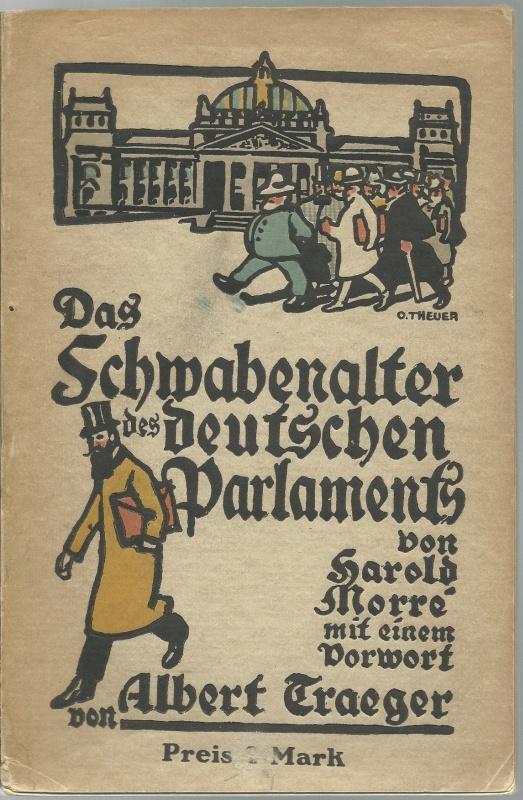In 2022, I attended the workshop “Ruling the Assembly. Procedural Fairness, Popular Emotion, and the Access to Democracy (19th-20th Centuries)“, organized by Dr. Anne Heyer (Leiden), Dr. Anne Petterson (Nijmegen) and Prof. Dr. Henk te Velde (Leiden) in Amsterdam. It explored how politicians and citizens tried to resolve the tension between reasonableness and accessibility of political debate, both in and outside Western European parliaments. What did political newcomers have to do in order to be listened to? What meaning did parliamentary rules have for citizens participating in public political discussions? And above all, how did they develop norms and practices for the conduct of democratic politics?
Some of the workshop’s contributions, including my own, have now been published in a special issue of the journal Parliaments, Estates and Representation.
My own contribution is titled
In All Seriousness: Laughter in the German Reichstag, 1871-1914
It can be accessed (Open Access) free of charge here.
Abstract
The ideal of parliamentary debate is often construed in terms of a disimpassioned exchange of arguments. Yet in its actual practice, emotions play a key role. As recent studies of French, Belgian, British, and other parliaments have shown, a closer look at the uses and understandings of laughter in the plenary debates can provide a useful entry point for a better understanding of the difficult to grasp atmospheric dimension of debates. Focusing on a case that has hitherto received little attention – the early decades of the German Imperial Reichstag – this contribution considers the varying modes of parliamentary humour, laughter and ridicule and their significance in the context of rhetorical struggles and processes of political in- and exclusion. In comparative dialogue with research on other parliaments (contemporary and otherwise), it contributes to a more precise characterisation of the internal dynamics of an institution still very much in flux, both in terms of its inner structures and its position within the wider framework of imperial politics. While contemporaries made a sharp distinction between exclusionary laughter and inclusionary mirth (Heiterkeit), a closer look at the plenary interactions shows that while parliamentary laughter performed many different functions, on the whole it primarily constituted a mechanism of de-escalation. Even the sharpest wit and ridicule helped generate an atmosphere in which political conflict could be negotiated without further escalation. As such, parliamentary humour did not stand in opposition to (rational) debate, but rather played a key role in the management of difference and conflict that the parliament was created to facilitate.



 I’m glad to announce that my article
I’m glad to announce that my article
